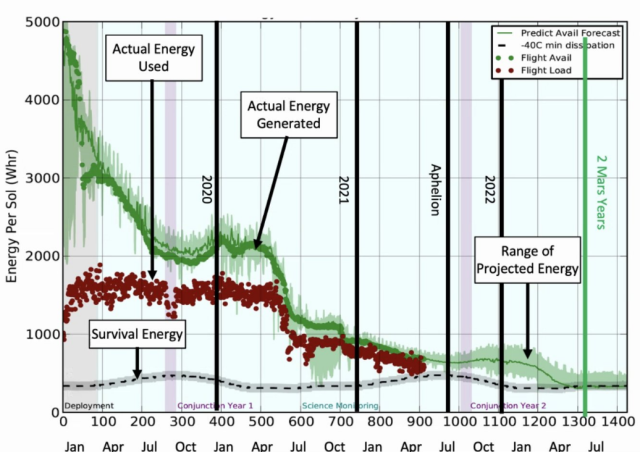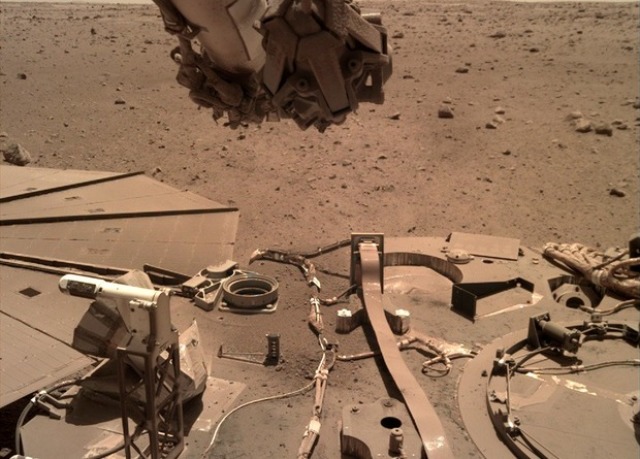The team of the InSight automatic Mars station decided to complete the operation of the device ahead of time, if effective methods for cleaning solar panels from dust are not found. Currently, the batteries are heavily dusty, and electricity generation has fallen by almost eight times compared to the initial level, according to the website Space.com.
InSight has been working on Mars for 2.5 Earth years, exploring the internal structure and climate of the planet. The station is provided with electricity by two solar panels, each with a diameter of about two meters. Since the landing, their output power has been constantly falling due to dust deposition, and the situation was aggravated by the inefficient cleaning of batteries by vortices, which scientists had hoped for. In addition, in two months, Mars will pass the aphelion of its orbit, which previously led to a reduction in the scientific program during the Martian winter.
On June 21, 2021, planetary scientist and InSight manager Bruce Banerdt from NASA's Jet Propulsion Laboratory spoke at a meeting of the MEPAG (Mars Exploration Program Analysis Group)group about the current situation with the station. Currently, about 80 percent of the area of solar panels is covered with dust, and electricity generation has fallen from 5,000 to 700 watt-hours. Earlier, the team applied a new method of cleaning batteries from dust using saltation, when large sand particles knock down smaller ones. The first such experiment increased energy production by 25-30 watt-hours, but the second attempt gave only a temporary increase in energy, and the third-only a small increase.

The graph of the drop in the level of electricity generation InSight due to the accumulation of dust.
Image source: Bruce Banerdt / Jet Propulsion Laboratory
Now the weather sensors and magnetometer are already turned off to save energy, and near aphelion, scientists can turn off all scientific instruments, which should help to survive the station winter. Nevertheless, despite the fact that after passing the aphelion, the illumination level of the batteries will increase, the accumulation of dust on them will increasingly reduce the level of available electricity. By April 2022, the device may be in a critical situation if effective methods of cleaning the batteries are not found, so scientists decided to complete the work of the station in early summer next year, and not in September, as it was decided earlier.
You can learn about the long and persistent struggle of Earth scientists for the shock probe of the station from our material "45 centimeters in 50 years" .
Alexander Voityuk

